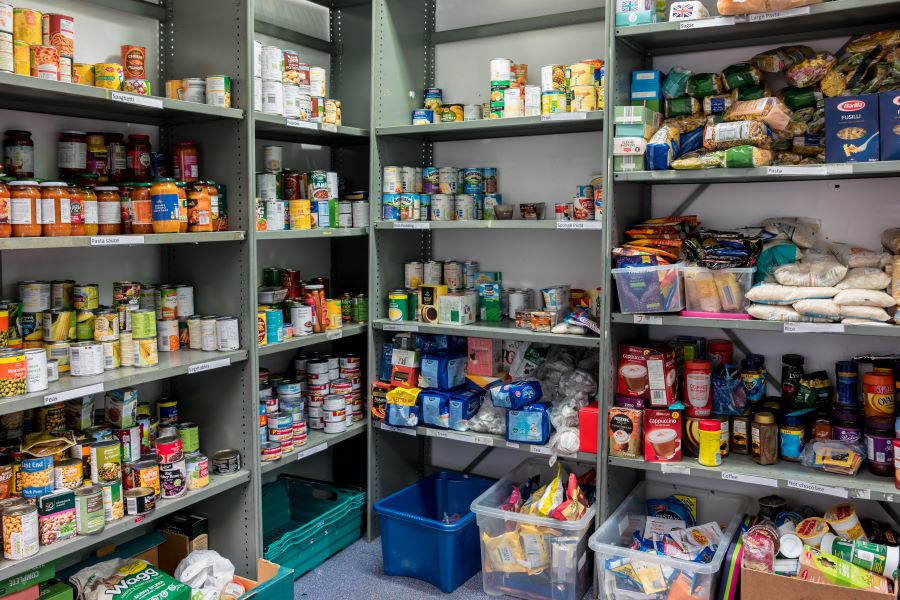


Deputies will shortly be asked to approve an increase in financial support to some of the poorest families in the island.
The Committee for Employment & Social Security wants the States to scrap the weekly income limit on households claiming income support. The limit - known as the benefit limitation - currently caps household income from all sources, including earnings and benefits. In some cases, the cap denies families financial support which they are calculated to need to escape relative poverty.
The benefit limitation has been raised significantly in recent years, particularly following recommendations from the Social Welfare Benefits Investigation Committee [SWBIC] in 2016. But the Committee for Employment & Social Security says it remains "a key cause of deprivation among low-income families and has a particularly detrimental impact on children".
The States' Assembly will vote on the proposals when it meets on 1 November to debate the draft 2023 Budget and non-contributory benefit rates for next year. If approved, the changes will come into force in January.

Pictured: The proposal to boost benefits for the poorest households will be led in the States by the Committee for Employment & Social Security.
"Removing the limit of weekly income is a crucial step in aiding some of Guernsey’s most vulnerable families, particularly children," said Deputy Peter Roffey, the President of the Committee.
"It is unjustifiable that a limit of income is applied to low-income households which often forces them to make impossible choices when paying for the most basic day-to-day necessities like food or utility bills. The Committee is of the opinion that continuing to impose this would only serve to create severe financial hardship for some Guernsey families.
"Removing the limit will not mean that there is no cap on the amount of income support for local households. The requirement rates and maximum rent allowances will remain in place and will control the level of income support available to all claimants. In addition, income support claimants will continue to be required to be in full-time work or be acting in compliance with individualised work requirements."

Pictured: More families are requiring financial assistance to put food on the table as the cost of living increases and poorer households become even worse off relative to others.
Charities providing services to some of the least well-off families in the island had advised the Committee of their increasing concerns about households' financial pressure. Some of this pressure is made worse by the benefit limitation, which will be set at £980 per week from 7 October.
The Guernsey Welfare Service, which operates a foodbank, said: "For a few years leading to 2020, we assisted a fairly static 450 to 460 households a year. In 2020, that figure rose by 23% to 560, and in 2021 it rose further to 584, a total increase of 28%. Compared to usage at this point last year, our 2022 figures are 9% up."
The Board of Every Child Matters said: "Adults in a family are prioritising their children’s health and wellbeing over their own which leads some to go without meals.”
The Committee said it is "intolerable that, in many cases, the limit of weekly income leads parents to go without essential items or adequate nutrition in order to feed their children".

Pictured: Deputies will be asked to back an increase in family allowance.
The Committee is also proposing an increase of 7% in family allowance and severe disability benefit to keep pace with the latest rate of inflation and an increase of 10% in the weekly rate of carer's allowance "to provide targeted financial assistance to carers".
Family allowance would be £15.80 per child per week. Severe disability benefit would be £121.52 per week. Carer's allowance would be £101.09 per week.
Another recommendation is to increase requirement rates by 7%. Requirement rates are calculated from the cost of goods and services considered essential to achieve an acceptable minimum standard of living in Guernsey and they determine the amount of income support available to a claimant.
The Committee forecasts spending on non-contributory benefits will reach £61.9million in 2022. The changes now proposed would push up the budget to £67.9m for 2023.
Bid to force P&R to work on poverty
P&R says States "must tackle" housing needs and cost of living
ESS plan to deny £600 increase to minimum salary for young workers
Comments
Comments on this story express the views of the commentator only, not Bailiwick Publishing. We are unable to guarantee the accuracy of any of those comments.